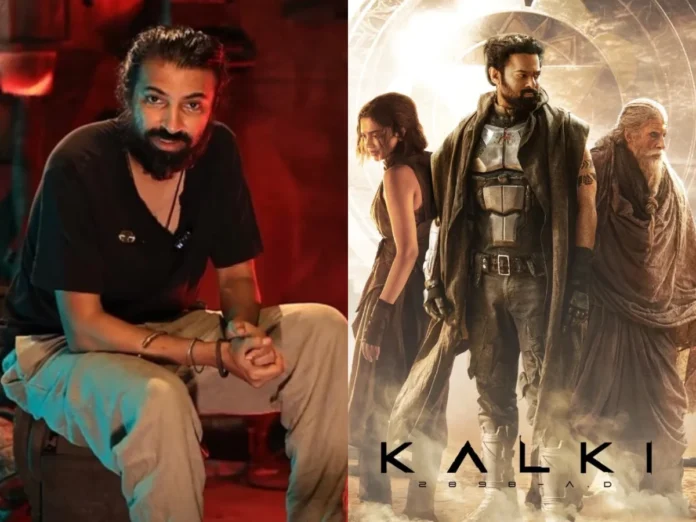The release of the much-anticipated film “Kalki 2898 AD,” featuring Prabhas and Deepika Padukone, on June 27, ignited a storm of reactions across social media. Critics and viewers alike swiftly shared their reviews and opinions, triggering a wave of discussions online. This trend of immediate, often polarized feedback has not gone unnoticed by industry insiders in South India, who have voiced concerns over the impact of social media critiques on film business dynamics. Recent films, particularly those rich in visual effects, have frequently become targets for online trolling and comparisons, and “Kalki 2898 AD” found itself similarly scrutinized upon its debut.
Amidst this backdrop, Nag Ashwin, the director of “Kalki 2898 AD,” took to social media platform X to urge fans and critics alike to defer detailed analysis and instead embrace the celebration of Indian cinema during its release weekend. His plea resonated with many supporters of the film, who expressed solidarity in prioritizing the communal joy of cinematic experiences over immediate critique.
The film, known for its ambitious storytelling and visual grandeur, marks a significant venture in Indian cinema. Its release has been anticipated not only for its star-studded cast but also for its innovative narrative approach and technical achievements. Despite the initial online chatter, enthusiasts of Indian cinema have rallied behind “Kalki 2898 AD,” lauding its efforts to push boundaries and redefine storytelling norms.
Industry experts suggest that while social media can amplify both praise and criticism, it is essential for filmmakers and audiences to maintain a balanced perspective on artistic endeavors. The call to celebrate Indian cinema amidst discussions reflects a broader sentiment among filmmakers and enthusiasts, emphasizing the importance of supporting creativity and diversity in storytelling.
As the fervor around “Kalki 2898 AD” continues to unfold, its impact on the future of Indian cinema and the reception of ambitious film projects remains a topic of keen interest among film buffs and industry professionals alike. Nag Ashwin’s encouragement to delay critical analysis in favor of celebrating cinematic achievements underscores the film’s aspiration to resonate deeply with audiences beyond immediate reviews.
Following the release of “Kalki 2898 AD,” the film’s reception on social media has underscored broader trends in contemporary film criticism and audience engagement. In recent years, the rise of digital platforms has democratized the reviewing process, allowing diverse voices to influence public opinion swiftly. However, this accessibility has also led to challenges, as filmmakers navigate the balance between creative expression and audience expectations shaped by instantaneous feedback.
Nag Ashwin’s call to postpone in-depth analysis reflects a growing sentiment among filmmakers grappling with the impact of social media on their work. Beyond mere entertainment, films like “Kalki 2898 AD” aim to provoke thought, inspire imagination, and challenge conventional storytelling norms. Such ambitious projects often face heightened scrutiny, especially in the realm of visual effects-driven narratives, where technical achievements are juxtaposed with narrative coherence.
The cultural significance of films like “Kalki 2898 AD” extends beyond box office success or critical acclaim; it serves as a reflection of contemporary Indian storytelling capabilities and cinematic prowess. By encouraging audiences to celebrate Indian cinema collectively, Nag Ashwin invites a dialogue that transcends individual opinions, fostering a deeper appreciation for the creative endeavors shaping the industry’s future.
Moreover, the film’s thematic exploration, blending elements of mythology with futuristic visions, offers a unique lens through which audiences can explore timeless themes in new contexts. This blend of past and future resonates with the evolving narratives of Indian cinema, highlighting its ability to adapt traditional storytelling to contemporary tastes and global audiences.
As discussions around “Kalki 2898 AD” continue to evolve, the film’s legacy will likely be shaped by its ability to navigate the complexities of audience expectations and artistic innovation. Beyond the immediate reactions, its impact on cinematic discourse and future projects underscores its role in pushing boundaries and redefining Indian cinema’s narrative landscape.

